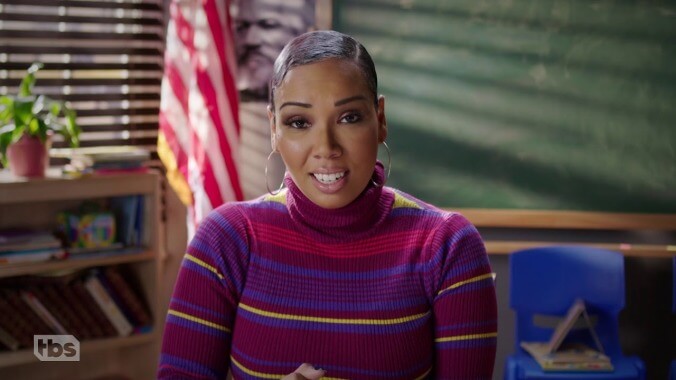On Full Frontal, George Wallace and others flunk white Americans on Black History Month

The first Full Frontal of Black History Month saw (not-back) host Samantha Bee stepping aside for her third segment to throw to a roster of leading black writers, historians, and comedian/Twitter legend George Wallace to school viewers about the black history that month is supposed to celebrate. Bee did note that perhaps literally everyone in the state of Virginia could do with a little refresher course, before turning introductory duties over to a (similarly not-black) filmstrip narrator whose brisk whitewashing of black history in America ran through Rosa Parks (sat down), Dr. Martin Luther King Jr. (made speech), then decades of filler and . . . Barack Obama! Satirizing the way that the long, complex, and ongoing struggle of black Americans is sanitized, streamlined, and made digestible for those looking to ignore the ever-present and persistent racism in American society, the glib presentation was then halted and retooled by some people (actual black people, even) who, shown sitting in a classroom, schooled Bee’s vapid voice-over guy. And, you know, America.
The New Yorker’s Jelani Cobb, cultural critic and writer Jamilah Lemieux, Invisible Man, Got the Whole World Watching author Mychal Denzel Smith, From #BlackLivesMatter to Black Liberation author Keeanga-Yamahtta Taylor, and comedian Wallace (whose Twitter account is its own, riotous historical record of mocking white bullshit) all took turns gamely debunking the most pervasively palatable spoonfuls of “black history.” Like how Dr. King wasn’t the cuddly “let’s all just get along” mascot whose unthreatening visage can be conjured up by baby-caging presidential white supremacists in performative MLK Day tweets. Or how Rosa Parks wasn’t the humble seamstress who wouldn’t give up that bus seat because her poor feet were tired but was, in actuality, a fearless activist who’d spent her life uncovering sexual abuse of black women by white men in the South, and fighting for women’s rights (including reproductive rights).
Bringing up a long list of figures conveniently and consistently overlooked in the official Black History Month (trademark symbol) record (from A. Philip Randolph, to Lena Horne, to Recy Taylor, to Dr. Carter G. Woodson), the group noted that Bayard Rustin is a prime example of someone whose lifetime of civil rights activism is sheared off of the narrative. As Walter Naegle, the late Rustin’s partner, explained, as a black, socialist, openly gay peace and labor activist as well as one of the most instrumental figures in organizing the March On Washington, Rustin’s legacy isn’t taught in schools alongside those undeniably worthy figures whose fight for civil rights can be distilled into something easily and blithely praised, and then filed away. The group drove home the idea that black history is both American history, and current American history, citing the Black Lives Matter movement as just one, new manifestation of a theme that can’t be summed up in platitudes. As Wallace, with signature garrulous disbelief, responded when the narrator broke in to happily pronounce that he’s all caught up on black history, “How old were you when your mind just got up and walked away from you?”